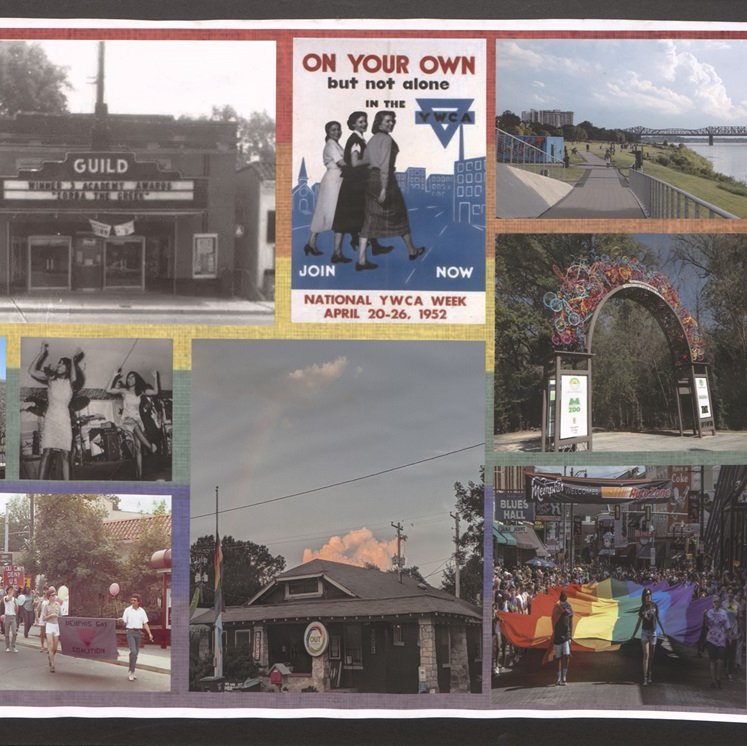Mississippians

Memphis Parks
Memphis parks have played an integral role in the evolution of Memphis Pride celebrations. Early pride celebrations took place at Audubon and Peabody Parks. The Mississippi Gay Coalition sent delegations to march in the early pride festivities. Mid-South Pride would continue to host pride events at Riverside Park and Robert Church Park before moving to Beale St., where they broke celebration records yearly before being forced to go virtual during the Covid-19 pandemic.
Memphis parks have provided a critical meeting space for the queer community. Public parks, such as Tobey Field, allowed the lesbian community to form softball leagues as an alternative to the bar scene. These softball leagues connected the Memphis lesbian community to a national network of sports leagues and feminist organizations. These helped national organizations such as the YWCA, NOW, and local feminist spaces like the Meristem Bookstore to become rooted in the community. Early lesbian and feminist organizations provided essential services to women and the queer community. Their success laid the groundwork for organizations such as OUTMemphis, a queer outreach organization headed by Mississippi native Stephanie Bell, to provide essential services such as the Metamorphosis Program, which targets eradicating queer youth homelessness.
Memphis and Segregation
Memphis is the northernmost of the three cities commonly referenced by queer Mississippians in oral histories and Mississippi queer print publications. Memphis has offered queer Mississippians a vibrant social outlet, a rich queer history, and community resources. The history of segregation and the Civil Rights movement shapes the contours of Memphis's queer community and the experiences of the Mississippians who were part of it.
Queer African Americans forged their own spaces apart from white establishments. Queer black men frequented cruising spots like Court Square Park and Riverside Park. In addition, segregation forced queer African Americans into bars mixed with straight patrons. The Flamingo Club was one of the most popular. Located off Beale St., the hub of Memphis nightlife, the bar featured popular musical acts such as Ike and Tina Turner.
In 1969 queer Memphians made history. As in many cities, Memphis had laws on the books banning cross-dressing. Yet these laws were rarely enforced, which queer Memphians used to their advantage. On Halloween, at the Guild Arts Theatre, they held the Miss Memphis Review, the city's first drag pageant.
